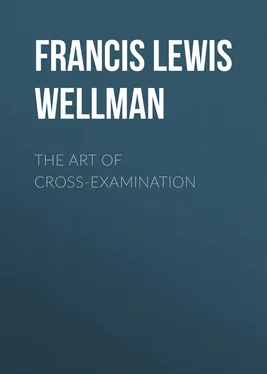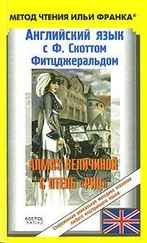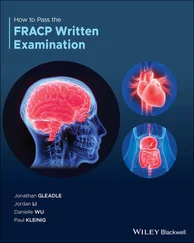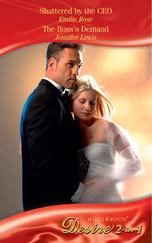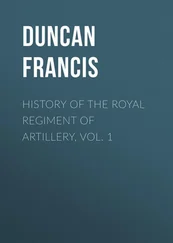Francis Lewis Wellman - The Art of Cross-Examination
Здесь есть возможность читать онлайн «Francis Lewis Wellman - The Art of Cross-Examination» — ознакомительный отрывок электронной книги совершенно бесплатно, а после прочтения отрывка купить полную версию. В некоторых случаях можно слушать аудио, скачать через торрент в формате fb2 и присутствует краткое содержание. Жанр: foreign_edu, Юриспруденция, на английском языке. Описание произведения, (предисловие) а так же отзывы посетителей доступны на портале библиотеки ЛибКат.
- Название:The Art of Cross-Examination
- Автор:
- Жанр:
- Год:неизвестен
- ISBN:нет данных
- Рейтинг книги:3 / 5. Голосов: 1
-
Избранное:Добавить в избранное
- Отзывы:
-
Ваша оценка:
- 60
- 1
- 2
- 3
- 4
- 5
The Art of Cross-Examination: краткое содержание, описание и аннотация
Предлагаем к чтению аннотацию, описание, краткое содержание или предисловие (зависит от того, что написал сам автор книги «The Art of Cross-Examination»). Если вы не нашли необходимую информацию о книге — напишите в комментариях, мы постараемся отыскать её.
The Art of Cross-Examination — читать онлайн ознакомительный отрывок
Ниже представлен текст книги, разбитый по страницам. Система сохранения места последней прочитанной страницы, позволяет с удобством читать онлайн бесплатно книгу «The Art of Cross-Examination», без необходимости каждый раз заново искать на чём Вы остановились. Поставьте закладку, и сможете в любой момент перейти на страницу, на которой закончили чтение.
Интервал:
Закладка:
A difficult but extremely effective method of exposing a certain kind of perjurer is to lead him gradually to a point in his story, where—in his answer to the final question "Which?"—he will have to choose either one or the other of the only two explanations left to him, either of which would degrade if not entirely discredit him in the eyes of the jury.
The writer once heard the Hon. Joseph H. Choate make very telling use of this method of examination. A stock-broker was being sued by a married woman for the return of certain bonds and securities in the broker's possession, which she alleged belonged to her. Her husband took the witness-stand and swore that he had deposited the securities with the stock-broker as collateral against his market speculations, but that they did not belong to him, and that he was acting for himself and not as agent for his wife, and had taken her securities unknown to her.
It was the contention of Mr. Choate that, even if the bonds belonged to the wife, she had either consented to her husband's use of the bonds, or else was a partner with him in the transaction. Both of these contentions were denied under oath by the husband.
Mr. Choate. "When you ventured into the realm of speculations in Wall Street I presume you contemplated the possibility of the market going against you, did you not?"
Witness. "Well, no, Mr. Choate, I went into Wall Street to make money, not to lose it."
Mr. Choate. "Quite so, sir; but you will admit, will you not, that sometimes the stock market goes contrary to expectations?"
Witness. "Oh, yes, I suppose it does."
Mr. Choate. "You say the bonds were not your own property, but your wife's?"
Witness. "Yes, sir."
Mr. Choate. "And you say that she did not lend them to you for purposes of speculation, or even know you had possession of them?"
Witness. "Yes, sir."
Mr. Choate. "You even admit that when you deposited the bonds with your broker as collateral against your stock speculations, you did not acquaint him with the fact that they were not your own property?"
Witness. "I did not mention whose property they were, sir."
Mr. Choate (in his inimitable style). "Well, sir, in the event of the market going against you and your collateral being sold to meet your losses, whom did you intend to cheat, your broker or your wife ?"
The witness could give no satisfactory answer, and for once a New York jury was found who were willing to give a verdict against the customer and in favor of a Wall Street broker.
In the great majority of cases, however, the most skilful efforts of the cross-examiner will fail to lead the witness into such "traps" as these. If you have accomplished one such coup , be content with the point you have made; do not try to make another with the same witness; sit down and let the witness leave the stand.
But let us suppose you are examining a witness with whom no such climax is possible. Here you will require infinite patience and industry. Try to show that his story is inconsistent with itself, or with other known facts in the case, or with the ordinary experience of mankind. There is a wonderful power in persistence. If you fail in one quarter, abandon it and try something else. There is surely a weak spot somewhere, if the story is perjured. Frame your questions skilfully. Ask them as if you wanted a certain answer, when in reality you desire just the opposite one. "Hold your own temper while you lead the witness to lose his" is a Golden Rule on all such occasions. If you allow the witness a chance to give his reasons or explanations, you may be sure they will be damaging to you, not to him. If you can succeed in tiring out the witness or driving him to the point of sullenness, you have produced the effect of lying.
But it is not intended to advocate the practice of lengthy cross-examinations because the effect of them, unless the witness is broken down, is to lead the jury to exaggerate the importance of evidence given by a witness who requires so much cross-examination in the attempt to upset him. "During the Tichborne trial for perjury, a remarkable man named Luie was called to testify. He was a shrewd witness and told his tale with wonderful precision and apparent accuracy. That it was untrue there could hardly be a question, but that it could be proved untrue was extremely doubtful and an almost hopeless task. It was an improbable story, but still was not an absolutely impossible one. If true, however, the claimant was the veritable Roger Tichborne, or at least the probabilities would be so immensely in favor of that supposition that no jury would agree in finding that he was Arthur Orton. His manner of giving his evidence was perfect. After the trial one of the jurors was asked what he thought of Luie's evidence, and if he ever attached any importance to his story. He replied that at the close of the evidence-in-chief he thought it so improbable that no credence could be given to it. But after Mr. Hawkins had been at him for a day and could not shake him, I began to think, if such a cross-examiner as that cannot touch him, there must be something in what he says, and I began to waver. I could not understand how it was that, if it was all lies, it did not break down under such able counsel." 9 9 "Hints on Advocacy," Harris.
The presiding judge, whose slightest word is weightier than the eloquence of counsel, will often interrupt an aimless and prolonged cross-examination with an abrupt, "Mr. –, I think we are wasting time," or "I shall not allow you to pursue that subject further," or "I cannot see the object of this examination." This is a setback from which only the most experienced advocate can readily recover. Before the judge spoke, the jury, perhaps, were already a little tired and inattentive and anxious to finish the case; they were just in the mood to agree with the remark of his Honor, and the "ATMOSPHERE of the case," as I have always termed it, was fast becoming unfavorable to the delinquent attorney's client. How important a part in the final outcome of every trial this atmosphere of the case usually plays! Many jurymen lose sight of the parties to the litigation—our clients—in their absorption over the conflict of wits going on between their respective lawyers.
It is in criminal prosecutions where local politics are involved, that the jury system is perhaps put to its severest test. The ordinary juryman is so apt to be blinded by his political prejudices that where the guilt or innocence of the prisoner at the Bar turns upon the question as to whether the prisoner did or did not perform some act, involving a supposed advantage to his political party, the jury is apt to be divided upon political lines.
About ten years ago, when a wave of political reform was sweeping over New York City, the Good Government Clubs caused the arrest of about fifty inspectors of election for violations of the election laws. These men were all brought up for trial in the Supreme Court criminal term, before Mr. Justice Barrett. The prisoners were to be defended by various leading trial lawyers, and everything depended upon the result of the first few cases tried. If these trials resulted in acquittals, it was anticipated that there would be acquittals all along the line; if the first offenders put on trial were convicted and sentenced to severe terms in prison, the great majority of the others would plead guilty, and few would escape.
At that time the county of New York was divided, for purposes of voting, into 1067 election districts, and on an average perhaps 250 votes were cast in each district. An inspector of one of the election districts was the first man called for trial. The charge against him was the failure to record correctly the vote cast in his district for the Republican candidate for alderman. In this particular election district there had been 167 ballots cast, and it was the duty of the inspectors to count them and return the result of their count to police headquarters.
Читать дальшеИнтервал:
Закладка:
Похожие книги на «The Art of Cross-Examination»
Представляем Вашему вниманию похожие книги на «The Art of Cross-Examination» списком для выбора. Мы отобрали схожую по названию и смыслу литературу в надежде предоставить читателям больше вариантов отыскать новые, интересные, ещё непрочитанные произведения.
Обсуждение, отзывы о книге «The Art of Cross-Examination» и просто собственные мнения читателей. Оставьте ваши комментарии, напишите, что Вы думаете о произведении, его смысле или главных героях. Укажите что конкретно понравилось, а что нет, и почему Вы так считаете.
